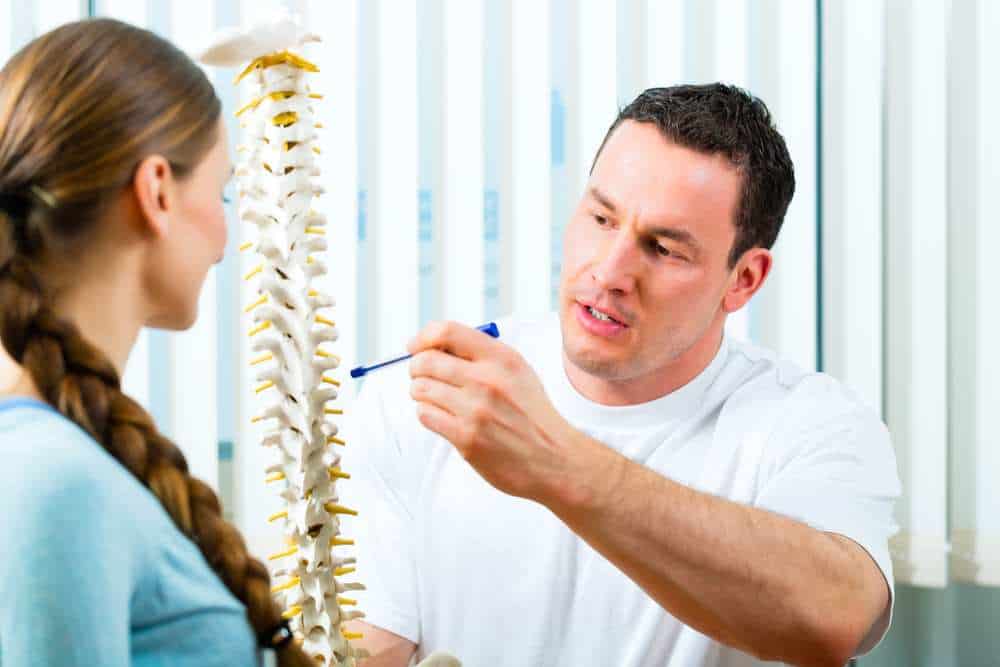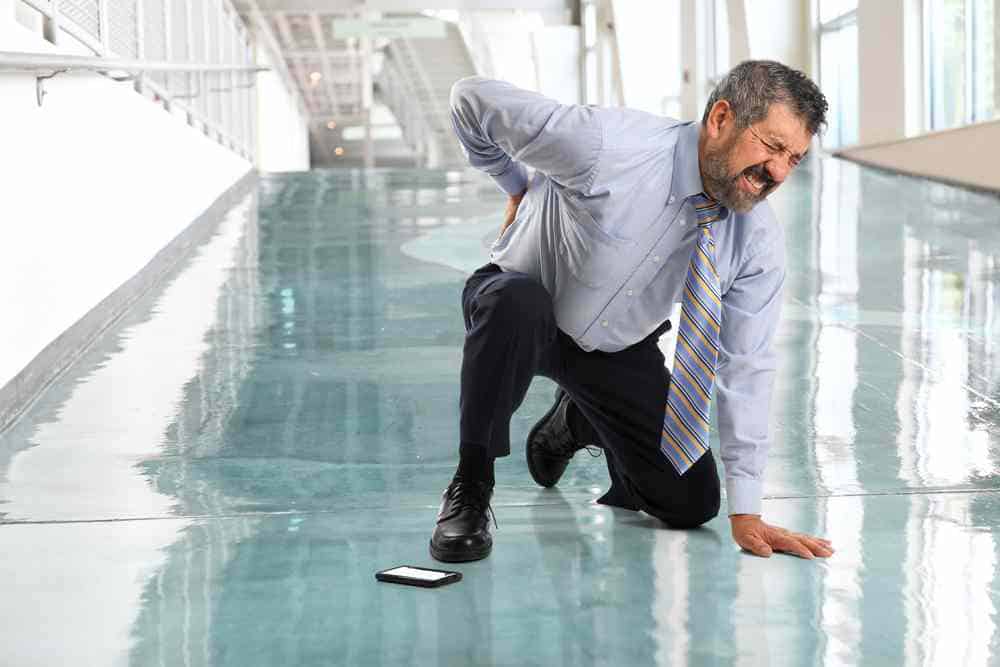An injury to your back can leave you in pain and make everyday movements and activities uncomfortable. Whether you suffered an injury from a car accident or have developed back pain from working at your desk for long periods of time, you can try remedies to treat common back injuries at home. What might start off as mild pain or discomfort can turn into a more serious issue that causes you to miss work, school, or fun social events. Several types of injuries can impact your spine and the soft tissues that support it. Your back involves a complex structure of vertebrae, cartilage, muscles, tendons, and nerves that work together to support a healthy spine and hold your body upright. Damage or issues to one or more of these structures can leave you in pain and disrupt your regular routines. Check out these five common back injuries, options for home remedies, and when to see your doctor.
Acute vs. Chronic Back Injuries
There are two types of back injuries: acute and chronic. An acute injury refers to a sudden injury, like from playing sports, a car accident, or lifting something too heavy. If you suffer an acute injury to your back, you will likely experience immediate pain and discomfort. The pain from an acute injury may get better on its own, or you may need medical care to treat the injury. On the other hand, chronic back injuries can develop over time because of repetitive movements, overuse, or too much pressure on your spine, muscles, or joints. A chronic back injury typically involves back pain that lasts more than three months. You might notice a gradual increase in pain and discomfort, especially if an injury goes untreated.
Home Remedies for Common Back Injuries

If you are wondering how to treat a back injury at home, it is important to understand what specific injury you are experiencing. Understanding your injury will help you determine what home remedies will help lessen your pain and discomfort. Here are five common back injuries and home remedies you can try to alleviate your pain and other symptoms while you heal and recover.
Strains & Sprains
A strain refers to an injury that affects muscles or tendons, while a sprain refers to a stretched or torn ligament. Back muscles and ligaments support your spine and can become twisted, pulled, or torn. If you have ever experienced a “torn muscle,” you know what a muscle strain feels like. Improper lifting or overstressing the muscles and tendons in your back can lead to a strain. A back sprain commonly occurs with a sudden fall, twist, or blow to the body that causes a ligament to stretch out of its normal range of motion.
At-home treatment for back strains and sprains typically involves resting and icing the area. The first thing you want to do is take a break from any activities that worsen your pain. This will give your body a chance to heal and reduce your pain. Applying ice or a cold compress can help reduce any swelling and provide a temporary numbing sensation in the area. At least 72 hours after the injury, you can also alternate with a heating pad or warm compress to help soothe aching muscles. If you suffer a back strain or sprain, you want to slowly reintroduce activities that require a lot of pressure on your back to avoid making the injury worse.
Back Spasms
A back spasm feels like a sudden tightness in your back muscles that can cause you pain and make certain postures and movements uncomfortable or difficult. You could experience back spasms after an injury like a back sprain or strain or after sitting or standing in an awkward way that aggravated your muscles. In many cases, back spasms occur temporarily and can be managed with at-home remedies like ice, heat, and over-the-counter pain medications. If you experience frequent back spasms, then your doctor may recommend chiropractic adjustments or therapeutic massage to help ease back spasms.
Herniated Disc
Spinal discs are located in between the vertebrae in your spine to help provide cushioning and shock absorption. These spongy discs have a tough outer shell and a jelly-like inside that allows you to move and flex while also preventing the bones of your spine from rubbing together. A sudden blow to your back or chronic poor posture over time can lead to one of these discs slipping out of its normal positioning. When a disc is out of alignment with vertebrae in the spine, it is known as a herniated disc. The soft inside of the disc may bulge outward and aggravate nearby nerves, causing pain, tingling, and numbness that extend into other parts of the body.
You can try home remedies to help alleviate the pain and discomfort of a herniated disc. The ligaments that support your spine may become weakened due to poor posture or a recent injury in the area. Gentle stretches can help strengthen the ligaments and other supportive tissues like back muscles in the area, so your spine receives better support. If you have a herniated disc, you can try resting your back and avoiding certain bending and twisting movements that may make your pain worse. Over-the-counter medications can help reduce your pain and any inflammation in the area. You can also practice better posture to support a healthy alignment of your spine.
Pinched Nerve
The spinal column houses the central nervous system, which includes bundles of nerves that send messages from your brain to the rest of the body and back. A herniated disc, inflamed tissue, or sudden injury can aggravate or compress a nerve, leading to a pinched nerve. A pinched nerve can cause a tingling and numbness sensation like pins and needles. If you have a pinched nerve in your back, you may notice a shooting pain or tingling sensation that moves into your extremities. Home remedies for a pinched nerve in your back include adjusting your posture to take pressure off the nerve and stretching to help alleviate pain.
Fractured Vertebra
A fractured vertebra, also known as a compression fracture, refers to a spine injury where a vertebra becomes cracked. In many cases, a fractured vertebra occurs due to aging and weakened bones. However, sudden trauma to the spine like a fall can also cause a fractured vertebra. If you suffer a fractured vertebra, you may experience sudden pain that can become chronic without proper treatment and care. A fractured vertebra may also lead to lost height or a hunched posture. Home treatment options for a fractured vertebra include resting, medication, and wearing a brace to better support your spine during the healing process.
How Chiropractic & Physical Therapy Can Help

Visit your chiropractor or physical therapist for additional care and support after a back injury. Some injuries require specialized attention to ensure a full recovery and to help prevent you from developing chronic pain or other complications. At Affordable Chiropractic Killeen, our team of Bell County chiropractors and physical therapists can help you experience lasting symptom relief from your back injury. We offer same-day appointments if you experience a sudden injury and will also work with you to help manage your pain and prevent further injuries. Contact us today or book an appointment online to learn more about how we can help you with your back injury.

